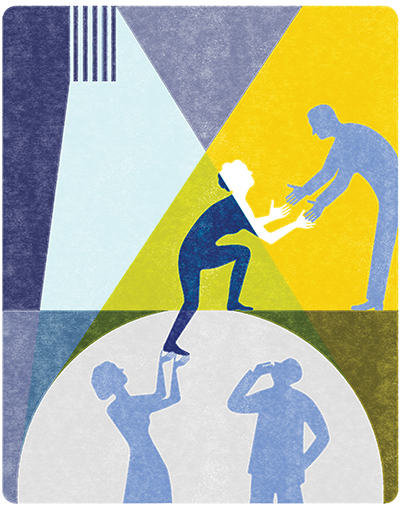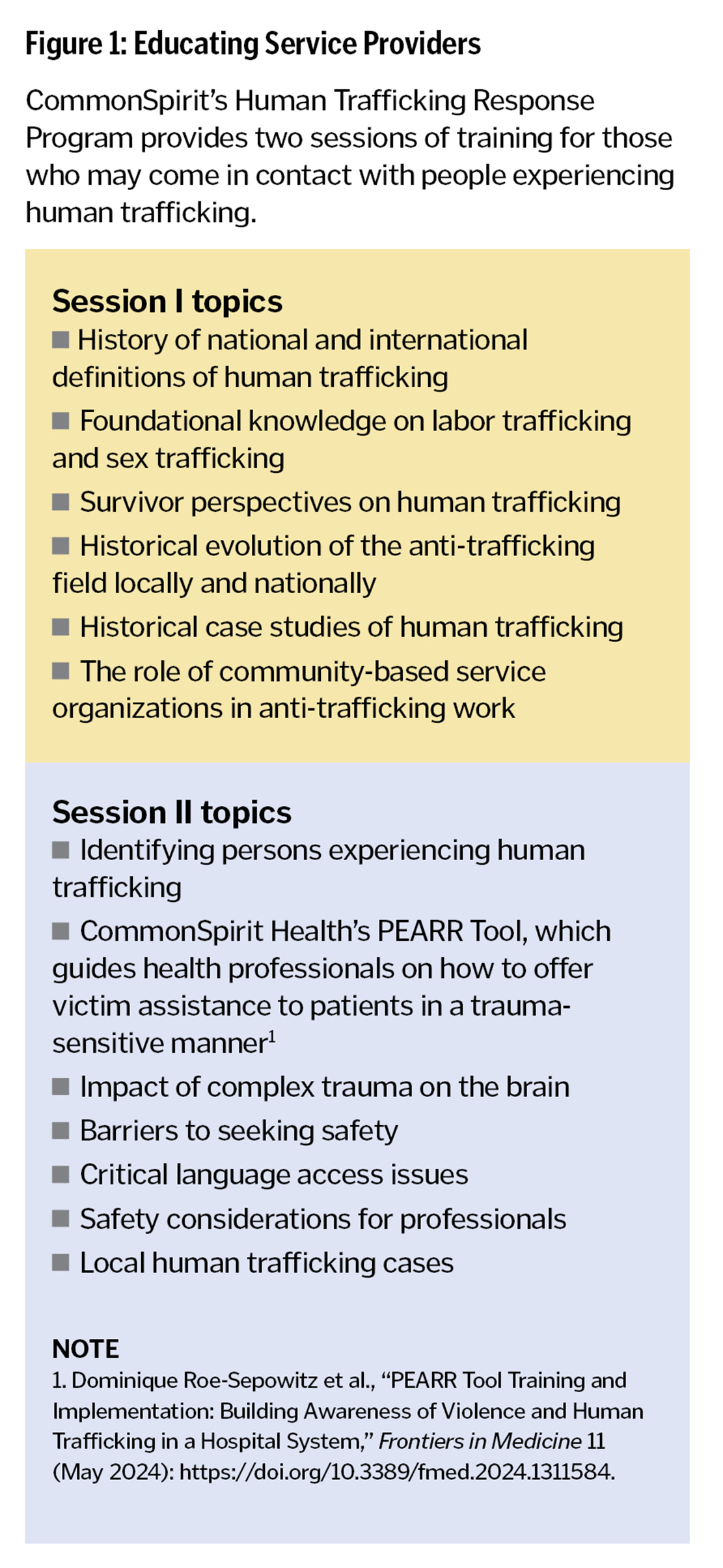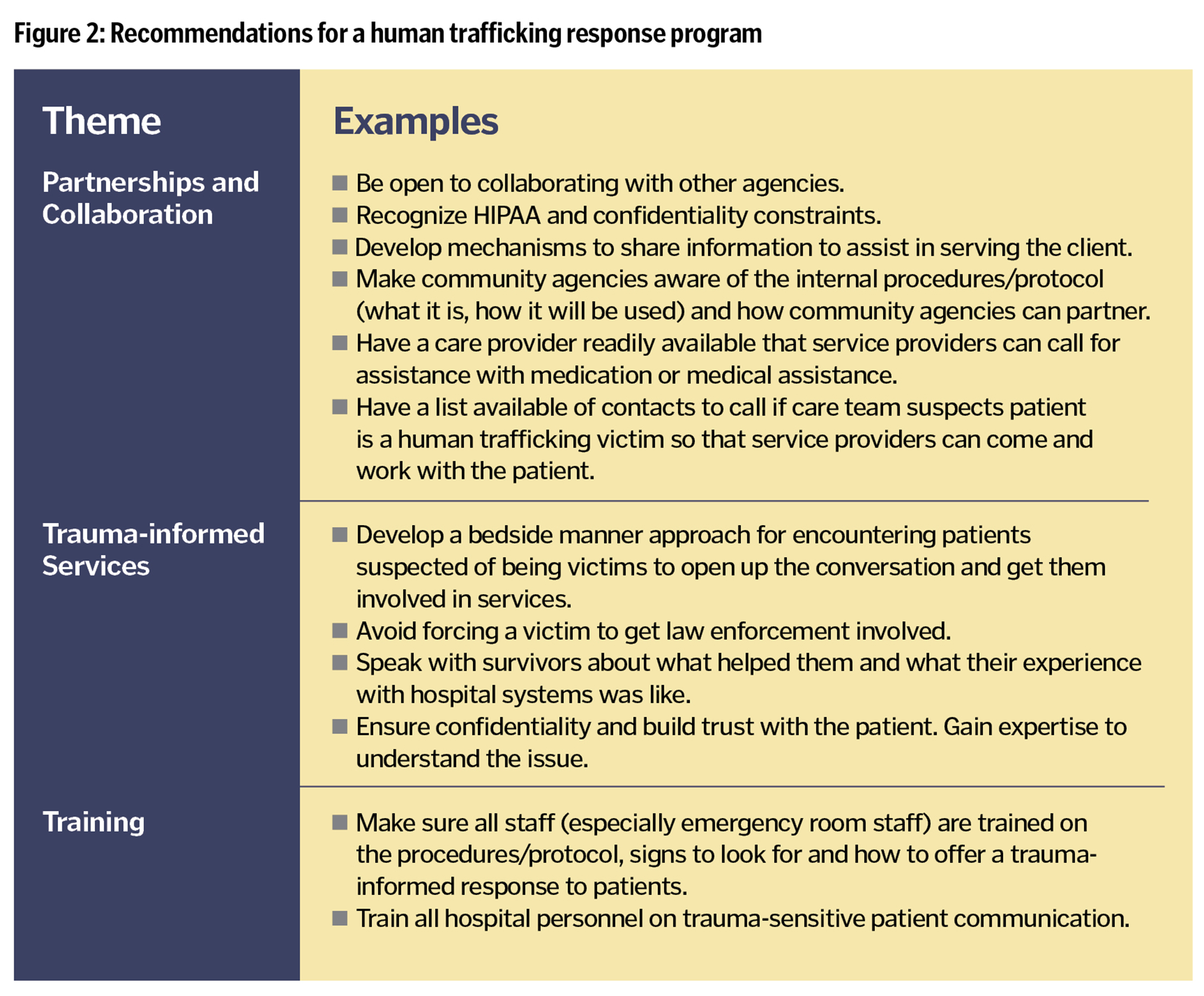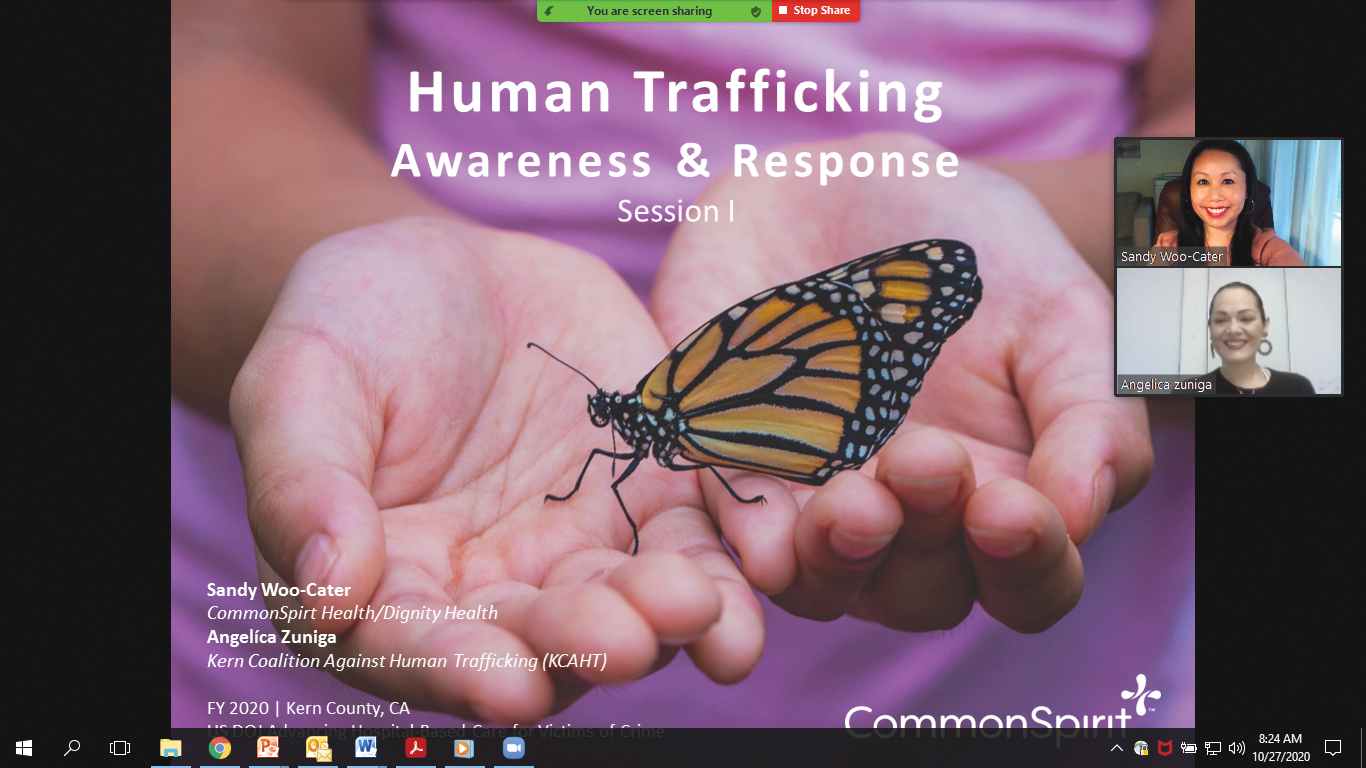
There is much more to Angelíca Zuniga than what she has lived through, but she shares her story to be of service to others. Today, she is a community leader who advocates for vulnerable people.
As a survivor of child abuse, human trafficking and intimate partner violence, Zuniga recounts a significant encounter in 2013 that changed the trajectory of her life forever. While in a trafficking situation one night, law enforcement approached Zuniga after spotting her out in an area they were patrolling. They soon realized that she needed help.
"I remember telling them to just take me to jail," Zuniga recalls. "I was so tired, so broken. I didn't want to live that life anymore; I just wanted to get off the streets."
Instead of taking her to jail, the officers took her to Dignity Health–Mercy Hospital Downtown in Bakersfield, California. Her health care needs were addressed, and she was later introduced to on-site advocates from a program now known as the Open Door Network.1 With her consent, advocates assisted in finding her a safe place to stay at the Women's Center-High Desert, where she also attended counseling.2
Zuniga received ongoing support and services, including professional career development, from the Kern Coalition Against Human Trafficking and its member organizations in the following years, and credits the collaboration of community partners as a significant part of her healing. The continuum of care in the region made a difference to her.
COMMONSPIRIT'S HUMAN TRAFFICKING RESPONSE PROGRAMCommonSpirit Health's systemwide Human Trafficking Response Program equips physicians, advanced practice providers and staff to identify and assist patients who may be experiencing any type of abuse, neglect or violence, including human trafficking.3

Efforts that began with Dignity Health and are bolstered through the expansion into the wider CommonSpirirt Health system include the hospital-based Human Trafficking Task Forces, led by senior nurse executives. They use a framework rooted in social support theory. The goal is for each multidisciplinary task force team to support colleagues and peers with informational, instrumental, appraisal and emotional support. Informational support includes providing guidance to staff about procedures, education and other resources. Instrumental support includes providing tangible resources, such as victim outreach posters, brochures and safety cards. Appraisal and emotional support include supporting staff with patient cases and case debriefings.
CREATING THE RIGHT SUPPORT NETWORKSIn 2018, the foundation now known as the CommonSpirit Health Foundation was awarded a federal grant of more than $940,000 from the Office for Victims of Crime, a part of the U.S. Department of Justice, to expand on and evaluate human trafficking response efforts in Kern County, California.4
This included efforts to strengthen partnerships with local organizations and advocates, including survivors of abuse and trafficking, and to strengthen the region's collective community capacity to support the physical and emotional needs of people experiencing abuse, neglect and violence, with a special emphasis on both labor trafficking and sex trafficking.
Sandy Woo-Cater, the project lead for CommonSpirit's Human Trafficking Response Program, restructured the education to include historical perspectives of trauma and human trafficking, including root causes of human trafficking vulnerabilities. She also included information about local resources for Kern County service providers. Examples of these providers include health care systems and supportive agencies for those undergoing homelessness, family violence, sexual assault, etc., who come into contact with people who may be experiencing human trafficking. She then facilitated the training series with Zuniga. While the training series was originally designed as in-person education, they quickly pivoted to accommodate virtual sessions with the onset of the COVID-19 pandemic. Nine direct service organizations received two sessions of training, each from February to November 2020. (See Figure 1 for training session descriptions.)

COMMUNITY PARTNERS PROVIDE INSIGHTS
To help measure the impact of these grant-funded efforts, CommonSpirit entered into a contract with Arizona State University's Office of Sex Trafficking Intervention Research. In October 2019,
representatives from this office interviewed leaders from six member organizations from the Kern Coalition Against Human Trafficking.
The participants provided recommendations regarding policies and procedures for hospital systems considering the creation of a human trafficking response program. Those involved in this process made multiple recommendations, and CHA members can learn more by downloading CommonSpirit's Human Trafficking Response Program's Shared Learnings Manual.5 (See Figure 2 for recommendations.)
HELPING OTHERS
CommonSpirit's human trafficking response efforts would not be possible without the commitment, strength and support of survivors like Zuniga sharing their insights, allowing us to also help others.

Zuniga has been a key part of projects against child abuse and human trafficking, among them serving as the chief executive officer for Redeemed Home, a safe haven for women in Bakersfield. She also provides supportive services to high-risk and adjudicated youth in Kern County as a survivor leader with the Kern County Department of Human Services. She is a community leader, wife, mother and grandmother who loves to be surrounded by her family, including her dachshund pups.
Paving the way for other survivors to find their voices, Zuniga continues to highlight the importance of human trafficking awareness education and trauma-sensitive approaches in health care, law enforcement and community-based organizations responding to human trafficking. "I was once a victim lost in the sex trade. I am now redeemed, restored and free."

HOLLY GIBBS is system director of CommonSpirit Health's Human Trafficking Response Program. In 2019, Gibbs received CHA's Sr. Concilia Moran Award.
NOTES
- The Open Door Network, https://theopendoornetwork.networkforgood.com. It was formerly known as the Alliance Against Family Violence & Sexual Assault.
- Women's Center High-Desert, https://www.wc-hdinc.org.
- "Human Trafficking Response Program," CommonSpirit Health, https://www.commonspirit.org/human-trafficking.
- "Dignity Health Receives Grants from U.S. Department of Justice to Expand Human Trafficking Response Programs," Dignity Health, November 29, 2018, https://www.dignityhealth.org/about-us/press-center/press-releases/2018-11-29-dignity-health-receives-grants-from-us-department-of-justice-to-expand-human-trafficking-response-programs.
- "Human Trafficking Response Program Shared Learnings Manual," CommonSpirit Health, August 2023, https://www.commonspirit.org/content/dam/shared/en/pdfs/impact/human-trafficking-response/CSH-HTRP-SharedLearningsManual-August-2023-Protected.pdf.
